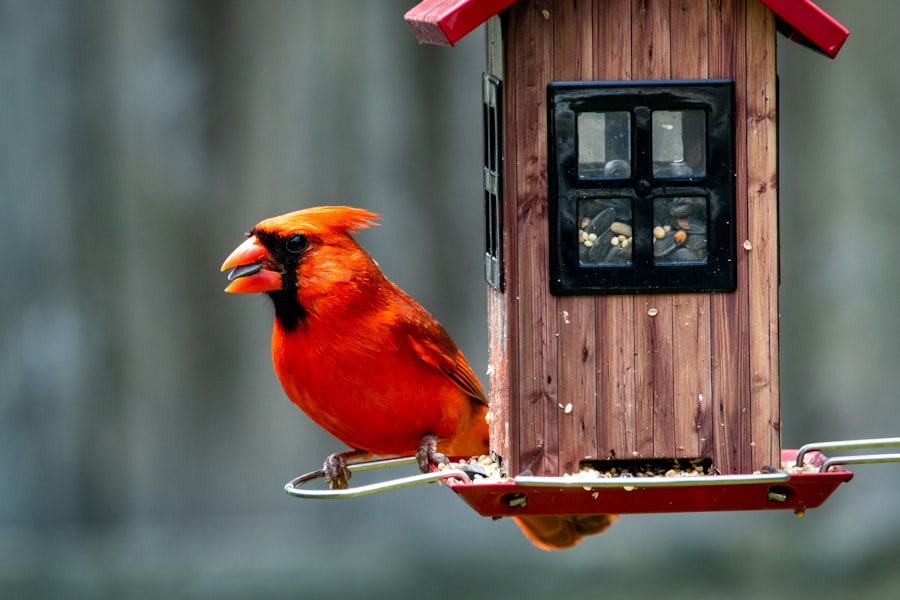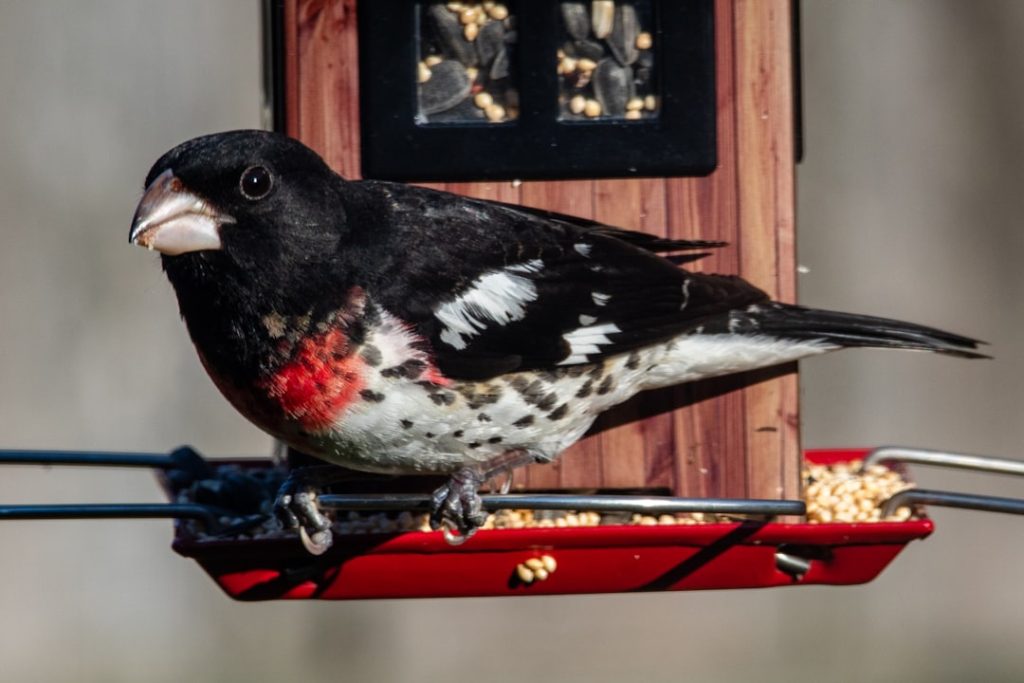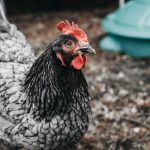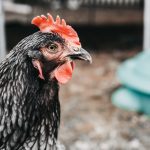When selecting chicken breeds for a backyard flock, several factors should be considered. Climate is an important consideration, as some breeds are better adapted to cold weather, while others thrive in warmer conditions. The intended purpose of the flock is also crucial, whether it’s for egg production, meat production, or both.
Certain breeds are known for their high egg-laying capacity, while others are valued for their meat quality. For those seeking friendly and docile chickens, breeds like Orpingtons or Sussex are recommended. These breeds are known for their gentle temperament and are suitable as pets for families with children.
If high egg production is the primary goal, breeds such as Leghorns or Rhode Island Reds are excellent choices. These breeds are renowned for their prolific egg-laying abilities and can be suitable for small-scale egg businesses. Available space is another important factor to consider.
Some breeds are better suited to confined environments, while others require more space to free-range. For limited spaces, smaller breeds like Silkies or Bantams are appropriate, as they can thrive in smaller coops. Ultimately, the ideal breed for a backyard flock depends on specific needs and preferences.
Thorough research of different breeds is essential to find the most suitable option for individual circumstances.
Table of Contents
- 1 Setting Up a Coop and Run
- 2 Feeding and Watering Your Chickens
- 3 Collecting and Storing Eggs
- 4 Keeping Your Chickens Healthy
- 5 Dealing with Predators and Pests
- 6 Tips for Maximizing Egg Production
- 7 FAQs
- 7.1 What are the benefits of keeping chickens at home for eggs?
- 7.2 What do chickens need to be kept at home for eggs?
- 7.3 How many chickens do I need to keep at home for eggs?
- 7.4 What are the legal considerations for keeping chickens at home for eggs?
- 7.5 What are some common challenges of keeping chickens at home for eggs?
- 7.6 What are some tips for keeping chickens at home for eggs?
Key Takeaways
- Choose a breed of chicken that suits your climate, space, and egg-laying needs
- Set up a secure and spacious coop and run to protect your chickens from predators and provide them with room to roam
- Provide a balanced diet of chicken feed, fresh water, and occasional treats to keep your chickens healthy and productive
- Collect eggs daily and store them properly to maintain freshness and quality
- Keep your chickens healthy by providing regular veterinary care, clean living conditions, and monitoring for signs of illness
- Protect your chickens from predators and pests by securing the coop and run, using deterrents, and practicing good hygiene
- Maximize egg production by providing a comfortable environment, proper nutrition, and minimizing stress for your chickens
Setting Up a Coop and Run
Building a Coop
When building a coop, there are a few key considerations to keep in mind. First, make sure the coop is large enough to accommodate your flock comfortably. Each chicken should have at least 2-3 square feet of space inside the coop, and 8-10 square feet of space in the run. Additionally, make sure the coop is well-ventilated to prevent moisture buildup and ammonia levels from rising.
Creating a Safe and Comfortable Run
When it comes to the run, it’s important to provide plenty of space for your chickens to roam and forage. Consider using chicken wire or hardware cloth to enclose the run and prevent predators from getting in. Additionally, provide plenty of shade and shelter from the elements, as well as perches and roosts for your chickens to rest on. Finally, make sure to provide access to fresh water and feed inside the run to keep your chickens healthy and happy.
Predator-Proofing Your Setup
In addition to setting up a coop and run, it’s important to consider predator-proofing your setup. Make sure to bury hardware cloth around the perimeter of the run to prevent predators from digging underneath. Additionally, consider installing motion-activated lights or sound devices to deter predators from approaching the coop at night. By taking these steps to set up a secure and comfortable coop and run for your flock, you can ensure that your chickens will thrive in their new home.
Feeding and Watering Your Chickens

Feeding and watering your chickens is an essential part of keeping them healthy and happy. When it comes to feeding, it’s important to provide a balanced diet that meets all of your chickens’ nutritional needs. A good quality commercial feed is a great base for their diet, but it’s also important to supplement with fresh fruits and vegetables, as well as kitchen scraps like grains and bread.
Additionally, consider providing access to grit and oyster shells to help with digestion and eggshell formation. In addition to providing a balanced diet, it’s important to make sure your chickens have access to fresh water at all times. Consider using a gravity-fed waterer or automatic waterer to ensure that your chickens always have access to clean water.
In colder climates, consider using heated waterers to prevent freezing during the winter months. By taking these steps to provide a balanced diet and fresh water for your flock, you can ensure that they will stay healthy and productive. Feeding and watering your chickens is an essential part of keeping them healthy and happy.
When it comes to feeding, it’s important to provide a balanced diet that meets all of your chickens’ nutritional needs. A good quality commercial feed is a great base for their diet, but it’s also important to supplement with fresh fruits and vegetables, as well as kitchen scraps like grains and bread. Additionally, consider providing access to grit and oyster shells to help with digestion and eggshell formation.
In addition to providing a balanced diet, it’s important to make sure your chickens have access to fresh water at all times. Consider using a gravity-fed waterer or automatic waterer to ensure that your chickens always have access to clean water. In colder climates, consider using heated waterers to prevent freezing during the winter months.
By taking these steps to provide a balanced diet and fresh water for your flock, you can ensure that they will stay healthy and productive.
Collecting and Storing Eggs
Once your chickens start laying eggs, it’s important to establish a routine for collecting and storing them properly. When collecting eggs from the nest boxes, be gentle and careful not to break them or disturb any broody hens that may be sitting on eggs. It’s best to collect eggs at least once a day to prevent them from getting dirty or cracked.
Once collected, store eggs in a cool place away from direct sunlight. When it comes to storing eggs long-term, it’s important to keep them at a consistent temperature of around 45-55 degrees Fahrenheit. This can be achieved by storing them in a refrigerator or cool cellar.
It’s also important to store eggs with the pointed end down to help maintain their freshness. With proper collection and storage techniques, you can ensure that your eggs will stay fresh and delicious for weeks after they’ve been laid. Once your chickens start laying eggs, it’s important to establish a routine for collecting and storing them properly.
When collecting eggs from the nest boxes, be gentle and careful not to break them or disturb any broody hens that may be sitting on eggs. It’s best to collect eggs at least once a day to prevent them from getting dirty or cracked. Once collected, store eggs in a cool place away from direct sunlight.
When it comes to storing eggs long-term, it’s important to keep them at a consistent temperature of around 45-55 degrees Fahrenheit. This can be achieved by storing them in a refrigerator or cool cellar. It’s also important to store eggs with the pointed end down to help maintain their freshness.
With proper collection and storage techniques, you can ensure that your eggs will stay fresh and delicious for weeks after they’ve been laid.
Keeping Your Chickens Healthy
Keeping your chickens healthy is essential for maintaining a productive flock. One of the most important aspects of chicken health is disease prevention. Make sure that your chickens are vaccinated against common diseases like Marek’s disease and Newcastle disease.
Additionally, practice good biosecurity measures by keeping wild birds away from your flock and disinfecting equipment regularly. In addition to disease prevention, it’s important to provide regular health checks for your chickens. Keep an eye out for any signs of illness or injury, such as lethargy, loss of appetite, or abnormal droppings.
If you notice any concerning symptoms, consult with a veterinarian who specializes in poultry health. Another key aspect of keeping your chickens healthy is providing proper nutrition and access to clean water at all times. Make sure that your chickens have access to a balanced diet that meets all of their nutritional needs, as well as plenty of fresh water throughout the day.
Keeping your chickens healthy is essential for maintaining a productive flock. One of the most important aspects of chicken health is disease prevention. Make sure that your chickens are vaccinated against common diseases like Marek’s disease and Newcastle disease.
Additionally, practice good biosecurity measures by keeping wild birds away from your flock and disinfecting equipment regularly. In addition to disease prevention, it’s important to provide regular health checks for your chickens. Keep an eye out for any signs of illness or injury, such as lethargy, loss of appetite, or abnormal droppings.
If you notice any concerning symptoms, consult with a veterinarian who specializes in poultry health. Another key aspect of keeping your chickens healthy is providing proper nutrition and access to clean water at all times. Make sure that your chickens have access to a balanced diet that meets all of their nutritional needs, as well as plenty of fresh water throughout the day.
Dealing with Predators and Pests

Common Predators and Threats
Predators and pests can pose a significant threat to your backyard flock if not properly managed. Common predators include raccoons, foxes, hawks, and snakes.
Securing Your Coop and Run
To protect your chickens from these threats, make sure that your coop and run are secure with sturdy fencing and hardware cloth buried around the perimeter. This will help prevent predators from getting inside and harming your flock.
Managing Pests and Keeping Your Flock Healthy
In addition to securing your coop and run against predators, it’s essential to manage pests like mites and lice that can affect your chickens’ health. Regularly clean out bedding material in the coop and use diatomaceous earth or other natural pest control methods to keep pests at bay.
Deterrent Methods for Added Protection
Another effective way to deter predators is by using motion-activated lights or sound devices near the coop at night. This can help scare off potential threats before they have a chance to harm your flock.
Tips for Maximizing Egg Production
If you’re interested in maximizing egg production from your backyard flock, there are several tips you can follow to achieve this goal. First, make sure that your hens have access to a high-quality commercial feed that is specifically formulated for laying hens. This will provide them with all of the essential nutrients they need for optimal egg production.
In addition to providing proper nutrition, make sure that your hens have access to plenty of natural light throughout the day. This can help stimulate egg production and encourage regular laying patterns. Another tip for maximizing egg production is providing comfortable nesting boxes where hens can lay their eggs in peace.
Make sure that nesting boxes are clean and lined with soft bedding material like straw or wood shavings. Finally, consider adding supplemental light in the winter months when natural daylight hours are shorter. This can help maintain consistent egg production throughout the year.
If you’re interested in maximizing egg production from your backyard flock, there are several tips you can follow to achieve this goal. First, make sure that your hens have access to a high-quality commercial feed that is specifically formulated for laying hens. This will provide them with all of the essential nutrients they need for optimal egg production.
In addition to providing proper nutrition, make sure that your hens have access to plenty of natural light throughout the day. This can help stimulate egg production and encourage regular laying patterns. Another tip for maximizing egg production is providing comfortable nesting boxes where hens can lay their eggs in peace.
Make sure that nesting boxes are clean and lined with soft bedding material like straw or wood shavings. Finally, consider adding supplemental light in the winter months when natural daylight hours are shorter. This can help maintain
If you’re considering keeping chickens at home for eggs, you may also be interested in learning about caring for geese. Poultry Wizard has a helpful article on whether geese can eat chicken feed, which can be found here. Understanding the dietary needs of geese can be important if you’re considering adding them to your backyard flock.
FAQs
What are the benefits of keeping chickens at home for eggs?
Keeping chickens at home for eggs can provide a sustainable source of fresh, organic eggs. It also allows for a closer connection to food production and can be a rewarding hobby.
What do chickens need to be kept at home for eggs?
Chickens need a secure and predator-proof coop, access to fresh water, a balanced diet of chicken feed, and a suitable outdoor space for foraging and exercise.
How many chickens do I need to keep at home for eggs?
The number of chickens needed depends on the desired egg production and available space. Generally, 2-4 chickens can provide enough eggs for a small household.
What are the legal considerations for keeping chickens at home for eggs?
Local regulations and zoning laws may dictate the number of chickens allowed, coop requirements, and distance from neighboring properties. It is important to check with local authorities before keeping chickens at home.
What are some common challenges of keeping chickens at home for eggs?
Common challenges include predator attacks, disease prevention, and managing chicken waste. Additionally, chickens may require regular maintenance and care.
What are some tips for keeping chickens at home for eggs?
Provide a clean and comfortable coop, offer a balanced diet, monitor for signs of illness, and handle chickens gently to ensure their well-being. Regularly collect and clean eggs to maintain freshness.
Meet Walter, the feathered-friend fanatic of Florida! Nestled in the sunshine state, Walter struts through life with his feathered companions, clucking his way to happiness. With a coop that’s fancier than a five-star hotel, he’s the Don Juan of the chicken world. When he’s not teaching his hens to do the cha-cha, you’ll find him in a heated debate with his prized rooster, Sir Clucks-a-Lot. Walter’s poultry passion is no yolk; he’s the sunny-side-up guy you never knew you needed in your flock of friends!







